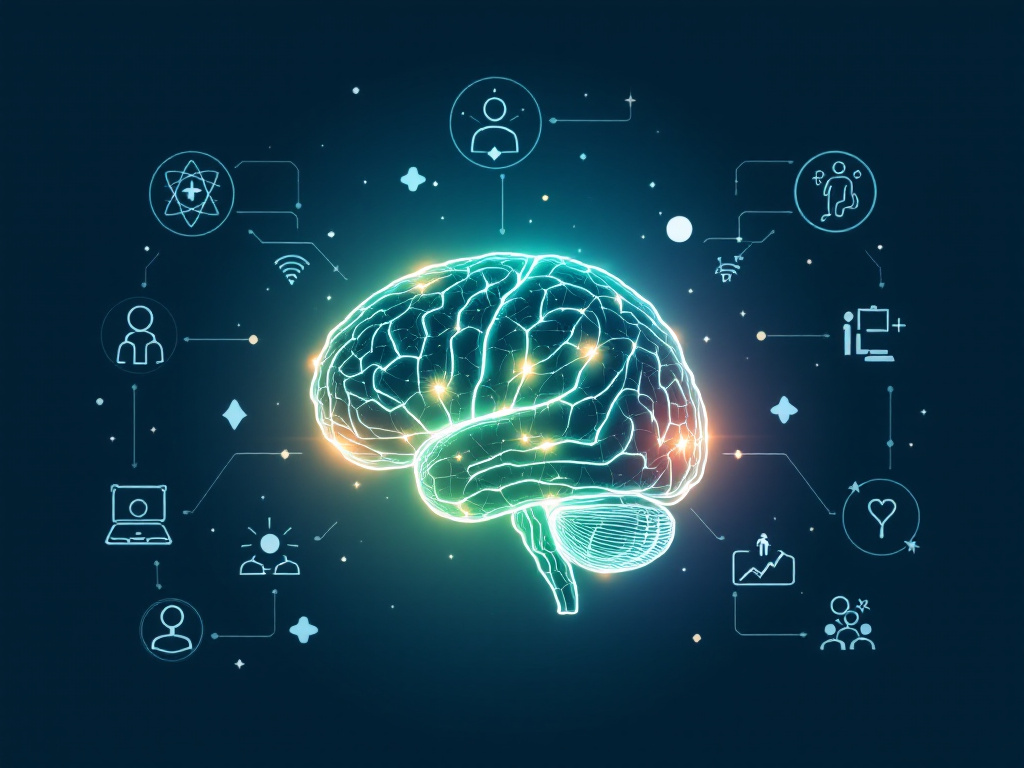Adderall is a common prescription stimulant for attention deficit hyperactivity disorder adhd. This drug can enhance focus and improve cognitive control when used as directed. Misusing the same medication can also lead to severe dependence and addiction.
Everyone today seems to focus on achievements. Thus, adderall abuse is common because it helps enhance a person’s performance. However, a short-term boost can quickly become a long term struggle with addiction and loss of control.
Questions Answered in This Article:
- What Is Adderall?
- Common Uses Of Adderall
- How Adderall Addiction Starts
- Warning Signs of Adderall Addiction
- Can You Recover From Adderall Addiction?
Drug Addiction Can Spiral Fast.
Get addiction treatment before it gets worse.
What Is Adderall?
Adderall is a central nervous system (CNS) stimulant made from two active ingredients: amphetamine and dextroamphetamine. These chemicals increase the levels of dopamine and norepinephrine in the brain. Adderall boosts neurotransmitters associated with focus, energy, and motivation.
When taken in prescribed doses under medical supervision, Adderall helps people with ADHD manage their symptoms. However, some take Adderall in larger amounts, more frequently, or without a prescription.
How Addictive Is Adderall?
Adderall is highly addictive when misused. Adderall has amphetamine, which is a stimulant for the central nervous system. It can increase dopamine, the brain’s “reward” chemical.
A rise in dopamine can lead to feelings of focus, energy, and happiness. This pleasurable effect reinforces repeated use and increases the risk of psychological and physical dependence.
What Makes It Addictive?
Why is Adderall addictive? Adderall alters brain chemistry, particularly in areas related to motivation, pleasure, and self-control. With constant use, the brain starts relying on the drug to feel normal. This can make it challenging to stop without withdrawal symptoms like fatigue, depression, and intense cravings.
Withdrawal isn’t something you should face alone
Let us help you through it.
Common Uses of Adderall
Adderall is a prescription medication primarily for the treatment of two medical conditions. The drug has approved and not medically approved uses.
Approved and Off-label Uses of Adderall
- Attention Deficit Hyperactivity Disorder (ADHD)
Adderall helps improve focus, attention, and impulse control in people with attention deficit hyperactivity disorder adhd. It works by increasing levels of dopamine and norepinephrine in the brain, enhancing concentration and reducing hyperactivity.
Benefits for ADHD patients:
- Improved focus and task completion
- Reduced impulsivity and fidgeting
- Better academic and workplace performance
- Narcolepsy
Adderall is also used to treat narcolepsy, a sleep disorder that causes excessive daytime sleepiness and sudden sleep attacks. The stimulant’s properties help patients stay awake and alert during the day.
Off-Label or Misused Uses (Not Medically Approved)
Adderall is sometimes used illegally or without a prescription for:
- Cognitive enhancement (e.g., studying or working late hours)
- Weight loss (lose weight by suppressing appetite)
- Boosting energy or mood
- Recreational use (for its euphoric effects)
The FDA does not approve these off-label uses, and they carry serious risks. An individual who misuses the drug is prone to develop tolerance, dependence, and adderall addiction.
How Adderall Addiction Starts
Is Adderall addictive? An adderall addict initially does not have the intention to misuse adderall. For many, it starts with a legitimate prescription or casual use to boost focus and energy. Over time, the line between use and dependence becomes unclear.
- Misuse for Productivity or Recreation
Many people first misuse Adderall to stay awake, improve academic or work performance, or get a euphoric “high.” Many college students often refer to adderall as a “study drug.”
However, taking Adderall without medical necessity creates a false sense of competence and invincibility. This encourages users to repeat the behavior.
- Increased Tolerance
Over time, the brain becomes accustomed to the presence of Adderall. The user then needs higher doses to achieve the same effects. Tolerance to Adderall can occur rapidly. As the dose increases, so do the risks, such as high blood pressure, mood disturbances, and neurological damage.
- Dependence and Withdrawal
Once the body gets used to functioning with Adderall, stopping suddenly can trigger withdrawal symptoms such as:
- Extreme fatigue
- Depression
- Anxiety
- Sleep disturbances
- Intense drug cravings
These symptoms can make it hard to quit without professional support.
- Addiction and Loss of Control
Addiction is marked by Compulsive use despite harmful consequences, which is a clear sign of substance abuse. At this stage, the person may:
- Obsess over getting and using Adderall
- Isolate from friends and family
- Neglect responsibilities at work or school
- Suffer financial or legal issues because of drug use
Call now to reclaim your life from addiction.
Confidential help is just one step away.
Warning Signs of Adderall Addiction
Early detection can make all the difference. Look for these adderall addiction signs:
- Taking higher doses than prescribed
- Using Adderall without a prescription
- Crushing and snorting pills
- Mood swings, irritability, or paranoia
- Insomnia or rapid weight loss
- “Doctor shopping” to get multiple prescriptions
- Using Adderall to cope with stress or negative emotions
If you or someone you love shows these Adderall addiction symptoms, it may be time to seek help. Symptoms of adderall addiction should never be taken lightly. Be conscious of the warning signs.
Long-Term Effects of Adderall Abuse
Chronic misuse of Adderall can have serious side effects, including:
- High blood pressure and irregular heartbeats
- Increased risk of heart attack or stroke
- Mental health disorders like anxiety, depression, and psychosis
- Cognitive decline or memory issues
- Damage to relationships, careers, and self-esteem
Adderall Addiction and Co-Occurring Disorders
Many people addicted to Adderall also struggle with mental health issues such as:
- Anxiety disorders
- Depression
- Bipolar disorder
- Eating disorders
Effective treatment should address these co-occurring mental health conditions. A dual diagnosis rehab center specializes in treating both addiction and mental illness simultaneously.
How to Stop Adderall Addiction
Stopping Adderall addiction requires more than just willpower. Here’s a step-by-step guide to breaking free and reclaiming your life from Adderall substance use disorder:
- Acknowledge the Problem
Honesty is the first step in the recovery process. Admitting to yourself, a loved one, or a medical professional that you have a problem is a courageous and essential move forward.
- Consult a Medical Professional
Never stop Adderall “cold turkey.” A treatment center can help you:
- Taper your dose safely to minimize withdrawal symptoms
- Monitor your health during detox
- Recommend addiction specialists or treatment programs
- Consider Detox in a Controlled Setting
Withdrawal can be uncomfortable and sometimes dangerous. A medically supervised detox ensures your safety and comfort while your body adjusts to life without Adderall.
- Enroll in an Addiction Treatment Program
Treatment facilities offer structured, evidence-based support, including:
- Individual therapy: Explore the root causes of your addiction
- Group counseling: Gain support and accountability from peers
- Cognitive Behavioral Therapy (CBT): Rewire destructive thought patterns
- Dual diagnosis treatment: Address co-occurring mental health issues
- Aftercare planning: Prevent relapse and support long-term recovery
- Develop Healthy Coping Strategies
People often turn to Adderall to manage stress or increase productivity. During recovery, you’ll need healthier tools, such as:
- Mindfulness and meditation
- Exercise routines
- Time management skills
- Healthy nutrition and sleep habits
- Build a Support System
Recovery is not a solo journey. Surround yourself with:
- Supportive family and friends
- Sponsors or mentors
- 12-step or non-12-step recovery groups
- Therapists and counselors
Can You Recover from Adderall Addiction?
While Adderall addiction is serious, it’s also highly treatable. Many people continue to live fulfilling, drug-free lives. The key is taking the first step and getting the right help for adderall addiction treatment.
If someone you love is showing signs of addiction:
- Approach them with compassion, not judgment
- Educate yourself about Adderall and its risks
- Encourage them to seek help
- Offer to help find a treatment center
- Consider staging an intervention with a professional
Remember: You can’t force someone to change, but you can support them in making healthier choices.
Breaking Free from Adderall Addiction
Adderall addiction often begins quietly. Taking a few extra pills for focus or late-night studying does not seem dangerous. But over time, it can take a serious toll on your physical health, mental well-being, and overall quality of life.
Recovery is possible. Whether you want to help yourself or a loved one, know that treatment options are available. adderall addiction treatment near me is within reach.
If Adderall addiction is affecting you or someone you love, don’t wait another day. Our expert team can guide you through detox, therapy, and long-term recovery with compassion and proven care.
Contact The Hope House and take the first step toward a healthier, drug-free future.






